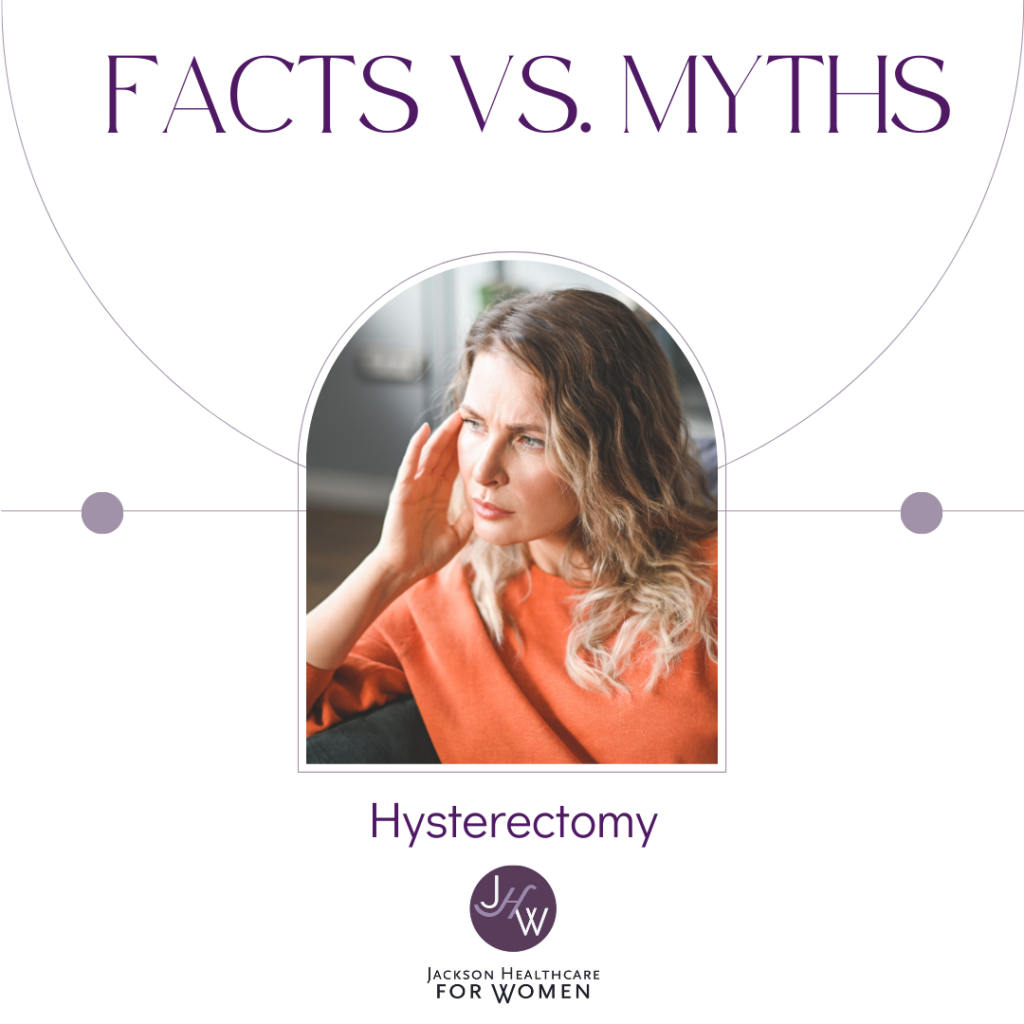Hysterectomy is used to treat many women’s health conditions, some of which include uterine fibroids, endometriosis, pelvic support problems, abnormal uterine bleeding, chronic pelvic pain, and gynecologic cancer. There are three different types of hysterectomy.
- Total hysterectomy—The uterus and cervix are removed.
- Supracervical hysterectomy—The upper part of the uterus is removed, but the cervix is left in place.
- Radical hysterectomy—The uterus and cervix are removed along with structures around the uterus. This surgery may be recommended if cancer is diagnosed or suspected.
An estimated 600,000 hysterectomies are performed each year in the United States. Despite this high number of surgeries, there are common myths and misconceptions about hysterectomy so this blog is designed to share the facts.
MYTH: I will go into menopause after a hysterectomy.
You will only go into menopause if your ovaries are removed during your hysterectomy, which is not always the case. However, if you have a hysterectomy during perimenopause, it may accelerate the onset of menopause by a few months to a year.
MYTH: I will start to have facial hair growth and a deeper voice after my hysterectomy.
Some women believe testosterone increases when your uterus and cervix are removed during hysterectomy but that is not true. Estrogen decreases only if one or both ovaries are removed. When estrogen decreases or stops being produced, you may experience symptoms similar to those that occur during menopause.
MYTH: I will become incontinent after my hysterectomy.
A hysterectomy shouldn’t cause urine leakage but if you do experience incontinence after your surgery, talk to your physician to determine what may be contributing to the issue. Incontinence can be caused by a variety of conditions.
MYTH: Hysterectomies cause weight gain.
A hysterectomy won’t affect how you physically age or how your body gains or loses weight, but it can be an emotional challenge. Removing parts of your reproductive system can affect how you feel as a woman and if you have a total hysterectomy, your estrogen reduction or loss may create an onset of symptoms. However, there is no data that supports weight gain as a direct result of hysterectomy.
About Jackson Healthcare for Women
Jackson Healthcare for Women is Mississippi’s leading provider of healthcare services for women. With 15 physicians on staff, Jackson Healthcare for Women is one of the largest and most respected women’s healthcare clinics in the area.

